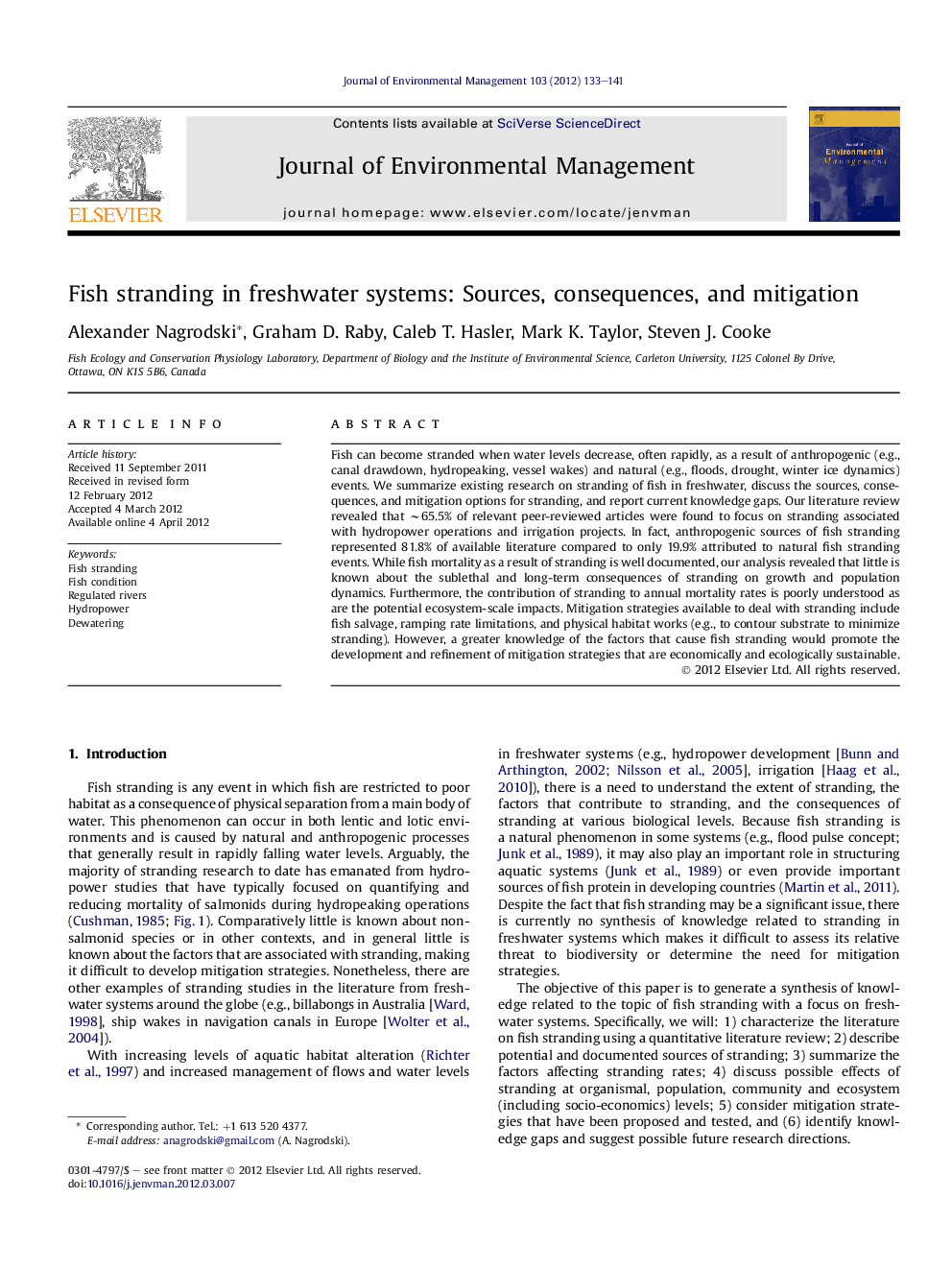| Article ID | Journal | Published Year | Pages | File Type |
|---|---|---|---|---|
| 1056650 | Journal of Environmental Management | 2012 | 9 Pages |
Fish can become stranded when water levels decrease, often rapidly, as a result of anthropogenic (e.g., canal drawdown, hydropeaking, vessel wakes) and natural (e.g., floods, drought, winter ice dynamics) events. We summarize existing research on stranding of fish in freshwater, discuss the sources, consequences, and mitigation options for stranding, and report current knowledge gaps. Our literature review revealed that ∼65.5% of relevant peer-reviewed articles were found to focus on stranding associated with hydropower operations and irrigation projects. In fact, anthropogenic sources of fish stranding represented 81.8% of available literature compared to only 19.9% attributed to natural fish stranding events. While fish mortality as a result of stranding is well documented, our analysis revealed that little is known about the sublethal and long-term consequences of stranding on growth and population dynamics. Furthermore, the contribution of stranding to annual mortality rates is poorly understood as are the potential ecosystem-scale impacts. Mitigation strategies available to deal with stranding include fish salvage, ramping rate limitations, and physical habitat works (e.g., to contour substrate to minimize stranding). However, a greater knowledge of the factors that cause fish stranding would promote the development and refinement of mitigation strategies that are economically and ecologically sustainable.
► When water levels decrease in freshwater ecosystems, fish can become stranded. ► It is unknown whether fish stranding contributes significantly to mortality rates. ► We summarize the sources, consequences, and mitigation options for fish stranding. ► Generalized statements can be made about the factors associated with stranding. ► It is difficult to assess effectiveness of mitigation strategies.
